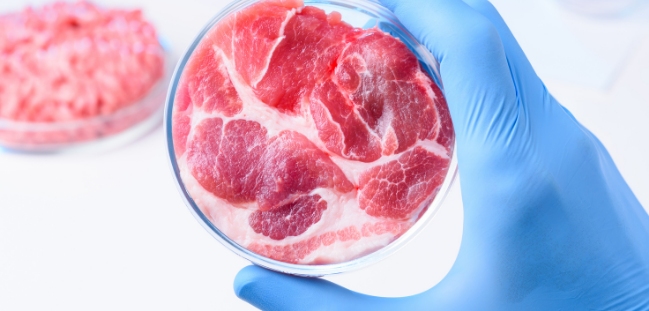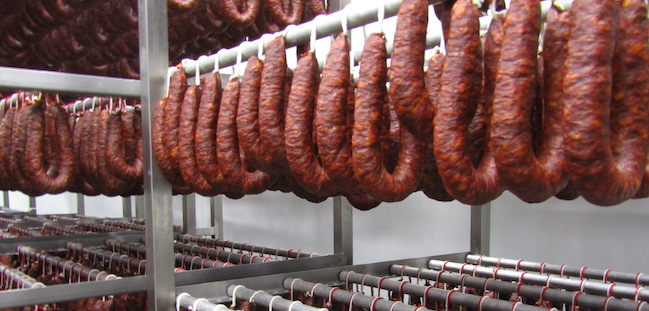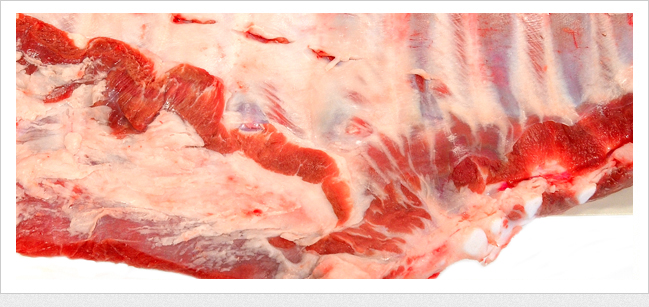Cinco mitos sobre la carne totalmente falsos

Constantemente se nos bombardea con información falsa o pseudocientífica sobre nutrición y salud, el consumo de carne y sus derivados. La carne es uno de los alimentos más perjudicados con esta propaganda. Hoy aclaramos algunos mitos y falsas creencias sobre el consumo de carne que no deberías creerte.
1. La carne no se digiere correctamente
Algunas personas afirman que la carne no se digiere correctamente y se “pudre” en el colon. Esto es absolutamente falso.
Lo que sucede cuando comemos carne es que el ácido del estómago y las enzimas digestivas la descomponen. En el intestino delgado las proteínas se asimilan y se transforman en aminoácidos y las grasas se transforman en ácidos grasos. Por lo tanto no se instalan en nuestro colon y se pudren, esto es un bulo.
Para el cuerpo humano hay otras sustancias mucho más difíciles de digerir que la carne como puede ser la fibra de algunos vegetales, frutas, legumbres y cereales, que son transformados en nutrientes por las bacterias del intestino ya que en el estómago no pueden descomponerse. Y esto es algo absolutamente inocuo para nuestro cuerpo.
2. La carne tiene un alto contenido en grasas saturadas y colesterol nocivos
Uno de los principales argumentos en contra de la carne es que tiende a tener un alto contenido de grasas saturadas y colesterol. Pero ya ha quedado suficientemente demostrado que las grasas presentes en la carne no son en su totalidad perjudiciales para la salud, ya que las grasas monoinstauradas y poliinstaturadas aportan muchos beneficios mientras que son las grasas saturadas las que tenemos que controlar ya que se relacionan con un mayor riesgo cardiovascular.
Por eso lo ideal es optar por cortes de carne magros, como el solomillo, el lomo… con más proporción de grasas saludables (monosaturadas y poliinsaturadas) y menos grasas saturadas.
También es importante tener en cuenta la alimentación y crianza del animal puesto que aquellos criados de forma ecológica y en libertad y alimentados con bellota o cereal ecológico, por ejemplo, presentan menos cantidad de grasa y una mayor proporción de grasa intramuscular, rica en ácidos grasos monoinsaturados, que son muy beneficiosos para nuestra salud.
Son por tanto, los cortes más grasos, los que cuentan con más grasas saturadas, los que deberíamos dejar para un consumo más más ocasional.
3. La carne roja causa enfermedades cardíacas y diabetes
Por extraño que parezca, a menudo se culpa a la carne de enfermedades como las enfermedades cardíacas y la diabetes tipo 2. Enfermedades relativamente recientes si las comparamos con el consumo de carne, que se remonta a la prehistoria.
En 2015, por ejemplo, la Organización Mundial de la Salud aseguraba que comer carne roja procesada era tan malo como fumar tabaco. En esta línea, un estudio de la Universidad de Harvard señala que ingerir un trozo de carne roja no procesada al día aumenta en un 13% el riesgo de morir de enfermedades cardiovasculares o de ciertos tipos de cáncer como colon y recto, mientras que el porcentaje sube al 20% en caso de las porciones procesadas.
Sin embargo una investigación internacional publicada en Annals of Internal Medicine sobre el consumo de carnes rojas y procesadas determinó que múltiples estudios, que durante décadas han señalado el peligro de estos productos para la salud, no tienen fundamento suficiente.
Y según ha evidenciado un estudio publicado recientemente en el ‘Journal of Nutrition’ por investigadores de la Universidad de Indiana-Bloomington el consumo de carne roja no aumenta el riesgo de padecer una enfermedad cardiovascular o diabetes. “La mayoría de los indicadores de salud metabólica y cardiovascular, como la sensibilidad a la insulina y el colesterol LDL, no difirieron entre una dieta con carne roja y otra sin. La única diferencia significativa observada fue un cambio hacia un mayor porcentaje de colesterol transportado en partículas de LDL más grandes y más flotantes“, han comentado los investigadores.
Incluso, la Universidad McMaster de Hamilton (Canadá) presentó el 2018 un informe, realizado a partir de experimentos con 218.000 personas de 50 países, y avalado por la Sociedad Europea de Cardiología, que afirma que comer carnes rojas no procesadas “está asociado con un beneficio para la salud”.
Por lo tanto no existe una relación directa probada en el consumo de carne y el riesgo de padecer estas enfermedades, sino que este riesgo está influido por otros muchos factores: genéticos, de estilo de vida, malos hábitos, consumo de alimentos ultraprocesados, sendentarismo…
4. Los humanos son animales naturalmente herbívoros
Algunos veganos afirman que los hombres no han sido “diseñados” para comer carne, sino para alimentarse con una dieta vegetal como los primates.
Pero la realidad muestra otra cosa bien distinta. Los humanos han comido carne y proteína animal desde hace miles de años y nuestro cuerpo está perfectamente adaptado a su consumo.
Nuestra biología ha ido adaptándose hacia una dieta más carnívora, lo que ha propiciado una serie de adaptaciones como un acortado tracto digestivo o un mayor desarrollo cerebral. Hay teorías además que sugieren que la introducción habitual de la carne en la dieta propició el desarrollo de las herramientas, cambios en la fisionomía de los homínidos y hasta impulsó el desarrollo cognitivo de nuestra especie. En definitiva, comer carne, nos hizo humanos.
5. La carne no es necesaria en nuestra dieta
En principio ningún alimento es indispensable en la dieta humana, pero está claro que la carne ha formado parte de nuestra pirámide alimentaria durante millones de años. Si decides dejar de comer carne es mejor que sustituyas sus proteínas por las de otros alimentos para que tu organismo no se resienta. La carne aporta proteínas de alto valor biológico, vitaminas principalmente del complejo B y minerales como el hierro, el fósforo, selenio, zinc, potasio o magnesio entre otros. La Sociedad Española de Nutrición Comunitaria (SENC) recomienda consumir entre 3 y 4 raciones a la semana, unos 500 gr, en total, las mismas que de pescado, priorizando los cortes magros, para mantener una buena salud. Y también debe tenerse en cuenta que las formas más saludables de cocinarla es a la plancha, asada y hervida e intentar no cocinarla demasiado.
Es por tanto la carne un alimento sano y básico de nuestra dieta, junto con productos frescos, poco procesados y de origen local y siempre incluyéndola dentro de un estilo de vida activo y saludable. En el equilibrio está la virtud.
CONCLUSIÓN: Infórmate bien antes de creer lo primero que lees sobre nutrición y alimentación puesto que hay muchos bulos por ahí y se tiende a demonizar determinados alimentos con mucha facilidad. Como has podido ver el consumo de carne es totalmente inocuo, todo depende de la calidad del producto, de la forma en que la consumas y de adoptar unos hábitos saludables y una dieta variada y equilibrada. El sentido común, como siempre, es lo más aconsejable.
Si quieres saber más sobre el papel de la carne en la alimentación, la salud y la cultura te recomendamos que visites www.carneysalud.com.










